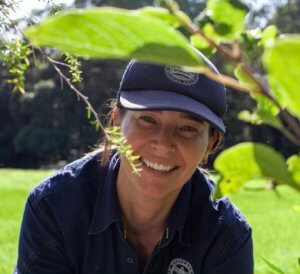


 It is an overwhelming experience when you begin your journey into becoming environmentally conscious. You discover the human impact on our environment is a polarising topic and it can be difficult to gauge where to begin. I believe public forums, such as the NSW Marine Parks Forum, are a great place to start.
It is an overwhelming experience when you begin your journey into becoming environmentally conscious. You discover the human impact on our environment is a polarising topic and it can be difficult to gauge where to begin. I believe public forums, such as the NSW Marine Parks Forum, are a great place to start.
On July 1, I had the privilege of attending the NSW Marine Parks Forum held at the University of Technology Sydney (UTS), co-hosted by the Australian Marine Conservation Society. Danielle Ryan (Marine Parks Campaigner at AMCS) and Peta Morton (Nature Conservation Council of New South Wales) spoke on behalf of the 1.5 million NGO supporters represented at the Forum, who care about protecting nature in their backyard.
I heard from some incredible speakers making waves (pun intended) to protect their marine environment, from Byron to Batemans Bay, and learned how highly protected marine sanctuaries can thrive when they are supported by strong, connected communities (like in Manly). However, it was shocking to hear how our Marine Parks, Australia’s backyard, can suffer neglect from higher up officials.

Nicole
Marine Parks should not be a ‘set and forget’ model: Professor of Marine Ecology David Booth raised eye-opening points during his presentation, highlighting that since the establishment of Marine Parks in 1994, marine park design has become a “set and forget” model.
In the almost 30 years since establishment, an accumulation of threats has arisen – marine extinction, sedimentations, marine heat waves, and microplastics infecting our waterways. Yet, we are failing to use available tools to tackle these challenges.
Professor Booth illuminated the importance of preserving marine biodiversity. Preserving our terrestrial landscapes and wildlife has been a long-serving model, and recognised as fundamental, yet our oceans are not always seen through the same lens.
The Forum called to question what is being done to rectify this issue, and how we can overcome the challenges preventing establishment of marine protection as only 10% of the land and less than 7% of the ocean is protected in NSW. The ocean was described as like the ‘wild west’. About a third of Australian fish stocks are classified as “overfished”, and over a ten-year period, researchers have found global fish stocks cannot be revived without ‘no take’ sanctuary areas.
Jarmbi’s powerful message — when we are emotionally and spiritually connected, we are more connected to the planet
Jarmbi, a free diver and Custodian of the Northern Rivers, tried to dial in, but unfortunately was cut off due to bad reception. He recorded this message:
“The expansion of the marine world, extension of everything, restoration of plankton, algae, means a lot on a great scale. However, without a spiritual and emotional connection, we are removing ourselves from the story. When we are emotionally, spiritually, and energetically connected, we become much more connected to the planet and humanity.”
I want Jarmbi to know that his words had a profound impact on me.
Listening to the next generation of National Parks advocates
The whole community should be engaged on this pressing issue of Marine Parks and it is important that a diverse range of voices are heard, including women. The ocean is shared by us all, and we should all have a say on how they are managed. Opening forums to the public is key, yet community voices are so often ignored by our higher officials.
This is why I enjoyed listening to the perspectives of the next generation — Sophie, Cecelia, Alisha and Tamanna from Ocean Youth.
They said “The fish size is shrinking. More mammal injuries, being maimed and killed by unregulated practices.” They called on our politicians to meet the 30% by 2030 global target for Protected Areas. They said the way in which to do so is to be “Bold, Brave, and Proactive.”
Ocean Youth called for more open forums to provide more open space for young people to be involved in discussions. Interactive events during the evening and on weekends are appealing to those who study and work, and they also felt it would be great to see more NGO members offer affordable prices for young people.
It’s time to open-up more public spaces, including to all who want to make a difference, so I encourage all community leaders to think about what activities they can create that target young people. There is a generational gap and it is often difficult to find ways to bridge differences, however, bridging this gap is essential if we are to reach the 30×30 target for Protected Areas. The deadline, 2030, is just seven and a half years from now, yet the government is failing to meet the existing Comprehensive, Adequate and Representative (CAR) goal of Protected Areas. For example, it is yet to establish a marine park for Sydney.
I envision a stronger and more unified voice around a common goal for Protected Areas – a voice which includes young people. Who knows, the young advocates at the NSW Marine Parks Forum may be the ones to rise-up and one day become leaders on the global stage.
I will end with a message from Jarmbi to all of us: “stand and speak up. Share knowledge. Be involved in conversations. Respect Aussie wildlife and consider the future generation.”
This event was co-hosted by AMCS, UTS’s SCHOOL OF LIFE SCIENCES, The National Parks Association New South Wales, Nature Conservation Council of NSW, Ocean Youth, WWF-Australia and The Wilderness Society.